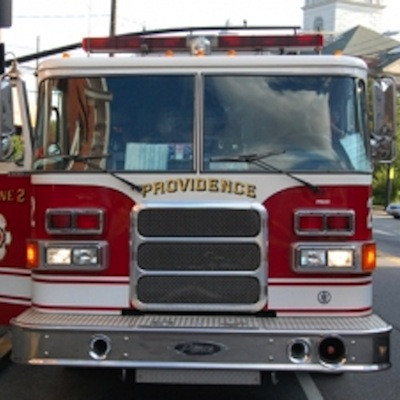Michael Riley: Is the RI Pension Commission Making Up Numbers?
Tuesday, January 28, 2014
The RI commission that was formed as a result of the 2011 Rhode Island pension reform was designed to address the pension issues of the cities and towns who were left out of state reform. Recently questions have been raised as to the veracity of the numbers used by and produced by both the commission and the town of West Warwick.
On June 13, 2013, state revenue director Rosemary Booth Gallogly’s commission produced a report on all those cities and towns that were deemed “critical status”, which is under 60% funded. West Warwick was 23% funded, but West Warwick was portrayed as having a 2013 UAAL of $75,000,000 and moving to 69% funded by 2033. Nothing could be further from the truth. There has not been a FIP voted on by the town or submitted to the state. Not only has West Warwick not done a single thing to reduce its liability, but the formerly critical Ms. Gallogly now acts as cheerleader for the town, recently commenting to the Providence Journal that “They’ve [the town] been very successful in getting everyone to the table, and I think they understand the magnitude of the problem.” Really? That is quite a shift from May 2012 when she compared West Warwick to Central Falls and the Titanic.
So here is what has happened since Commissioner Gallogly’s Titanic speech in May 2012.
GET THE LATEST BREAKING NEWS HERE -- SIGN UP FOR GOLOCAL FREE DAILY EBLAST
Where did the June 2013 Commission report number come from? At that point, the town hadn’t yet voted on an option or even met to discuss the options with all the parties involved. There had been zero negotiation in 2 years; despite knowing for at least 5 years, bankruptcy was growing more likely. It is no longer likely, it is impending, and the sooner West Warwick moves into receivership, the better.
There is no chance the newly formed team of a town planner-turned-town manager/Budget Director will make the tough cuts necessary or fund the ARC. In addition, appointing a dismissed Providence (also near receivership) financial official as Finance Director is cosmetic but necessary, because West Warwick doesn’t even speak the same language as the State Revenue Commission.
Honesty the best policy?
Still, it’s very odd that the commission used such misleading numbers in June. Where did those numbers come from? What is the point of making up numbers? This commission is in real danger of losing power. They have clearly signaled that they are ready to move on to OPEB—which in many cases is an even higher liability than pensions—yet the job is unfinished on pension reform. The commission is very concerned about the OPEB, because in many towns it is worse than the pension crisis.
Unfunded health care obligations totaled $107,000,000 in West Warwick as of the June 2012 CAFR. The OPEB liability alone is $8,600 per household. Combine that with Moody ‘s estimate of pension liability per household of $20,161 and $29,761 dollars are required per household…and that is just to get West Warwick back on schedule. In no way would this eliminate all the problems. Costs would still have to be controlled and financial markets would need to continue their positive trend. It should concern everyone that since April 2009, the stock market has more than doubled and the assets in the pension plan on June 30, 2009 were $31 million and today they are only $26.5 million.
If taxpayers alone were asked to fund West Warwick’s liability back to just the insufficient and phony numbers submitted by the Commission in June 2013, it would be a supplemental tax of $75 to $100 million. That supplemental tax will be $8,064 per household, and that’s not even touching OPEB.
West Warwick residents should ask themselves if that’s fair. Do they still want public employees on defined pension plans managed by the town? Ms.Gallogly should ask herself if grandstanding and spinning is her job or if fixing a crisis is what we need from her.
Michael G. Riley is vice chair at Rhode Island Center for Freedom and Prosperity, and is managing member and founder of Coastal Management Group, LLC. Riley has 35 years of experience in the financial industry, having managed divisions of PaineWebber, LETCO, and TD Securities (TD Bank). He has been quoted in Barron’s, Wall Street Transcript, NY Post, and various other print media and also appeared on NBC news, Yahoo TV, and CNBC.
Related Slideshow: The 15 Costliest Government Programs in RI
Related Articles
- Guest MINDSETTER™ Mike Riley: Rhode Island is More Conservative than You Think
- Guest MINDSETTER™ Mike Riley: Right-to-Work is Right for Rhode Island
- SUPER POLL: Jim Langevin or Mike Riley
- Guest MINDSETTER™ Michael Riley: Rhode Island’s Leadership Problem
- Voter Guide: Mike Riley Profile (2nd Congressional District)
- Michael Riley: West Warwick Is Headed For Disaster
- Voter Guide: Mike Riley Profile (2nd District)
- PowerPlayer: Republican Congressional Candidate Michael Riley
- Don Roach: Jim Langevin Should be Very Afraid of Mike Riley
- Don Roach: Mike Riley can Beat Jim Langevin




































